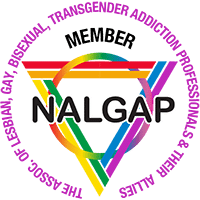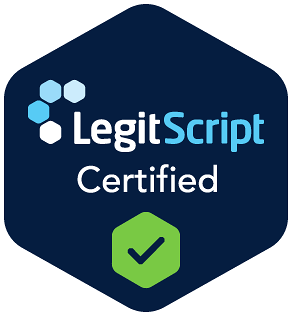Stimulant Addiction Treatment Denver
Break free from stimulant addiction at Mile High Recovery, where a caring team and supportive peer network walk alongside you every step of the way.
Stimulant Rehab Center in Denver, CO
At Mile High Recovery Center, we recognize the challenges stimulant abuse can bring to your life and the lives of those you care about. Our facility in Denver is a safe, welcoming space offering understanding, encouragement, and professional guidance. Here, healing is about rediscovering who you are and cultivating the strength and resilience needed to truly end dependency.
Our close-knit community is at the heart of what we do, ensuring you never have to walk this path alone. We’re committed to fostering genuine connection and growth, both through our methodology and devoted staff. With evidence-based therapies, group activities, and sober events, you’ll discover that we offer more than just treatment for stimulants – we give you a chance to rebuild your life with purpose.

Understanding Stimulant Addiction
The effects of stimulant abuse often unfold rapidly, taking a toll on every aspect of your well-being. Whether it’s cocaine, meth, or prescription drugs, these substances are often misused in an attempt to boost self-esteem, suppress appetite, or enhance physical and mental performance. This can lead to compulsive patterns, trapping individuals in a cycle of intense highs and crashes, resulting in anxiety, fatigue, and other serious health risks.
Because stimulants are sometimes used to keep up with hectic daily routines, it’s easy to underestimate how quickly you can become hooked. The social and emotional consequences can be profound, even for those who seem to be functioning well on the surface.
The psychological grip of stimulants can be overwhelming, affecting work, relationships, and personal balance. But freedom is absolutely possible. Our team has helped many break the cycle, rebuild their lives, and find new purpose.
Benefits of Stimulant Addiction Treatment
A true comeback from stimulants requires more than willpower. It calls for expert guidance, compassion, and a holistic approach. In a therapeutic environment, you can safely navigate withdrawal and rebuild a strong, functional foundation for the future.
Key benefits of our stimulant use disorder treatment include:
- Addressing the emotional and psychological drivers of dependency
- Learning to recognize triggers and develop a coping mechanism
- Guidance to repair and strengthen important relationships
- Dual diagnosis program to treat co-existing mental health conditions
- Assistance in building a consistent and productive daily schedule
- Resources and workshops to educate and involve loved ones
- Access to adventure, equine-based, and experiential therapies
- Lasting peer communication through a connected network
No matter where you are in your journey, the right treatment plan at our rehab center will offer you the encouragement and helping hand you need to overcome the pattern and step into a new chapter with confidence.

Why Choose Mile High Recovery Center for Stimulant Addiction Treatment?
Choosing our rehab center means experiencing full-spectrum healing through both structured clinical procedures and integrative strategies. We develop custom programs to address all dimensions of your current lifestyle while empowering you to achieve lasting sobriety.
Our program is:
- Evidence-Based: We offer therapies like CBT, DBT, and EMDR, tailored to your unique needs.
- Holistic: We pay attention to every aspect of your wellness—physical, emotional, and spiritual.
- Community-Oriented: Enjoy group outings, creative workshops, and consistent peer support.
- Inclusive & Accessible: We make quality treatment affordable and welcoming for all individuals.
Nestled in Denver, our center provides the ideal setting to begin your renewal journey. With Colorado’s stunning natural beauty all around, you’ll have the inspiration you need to recover and embrace a joyful, substance-free future.
Resources
- https://www.webmd.com/mental-health/what-is-equine-therapy-equine-assisted-therapy
- https://www.verywellmind.com/equine-therapy-mental-health-treatment-4177932
- https://leapequine.com/wp-content/uploads/2020/04/Tramutt-J-Opening-the-Gate-Cultivating-Self-awareness-Acceptance-through-EFP.pdf
- https://pubmed.ncbi.nlm.nih.gov/28513182/
- https://equinewellnessmagazine.com/horses-mindfulness/
Reach Out Today to See How Mile High Recovery Center Can Help You Heal
If you or a loved one are ready to regain autonomy over your lives and well-being, recovery starts here. Let us guide you toward sustainable wellness and sobriety through our personalized treatment plans tailored to your unique needs and experiences. We look forward to hearing from you!
Substance Abuse Treatment
- Substance Abuse Treatment
- Alcohol Addiction Treatment
- Benzo Addiction Treatment
- Dual Diagnosis Treatment
- Opiate Addiction Treatment
- Stimulant Addiction Treatment
- Xanax Addiction Treatment
- Opioid Addiction Treatment
- LSD Addiction Treatment
- Marijuana Addiction Treatment
- Cocaine Addiction Treatment
- Methamphetamine Addiction Treatment
Addiction Therapies
- Marketing by Behavioral Health Partners
- Recovery Center Denver, CO -
- Privacy Policy -
- Sitemap




